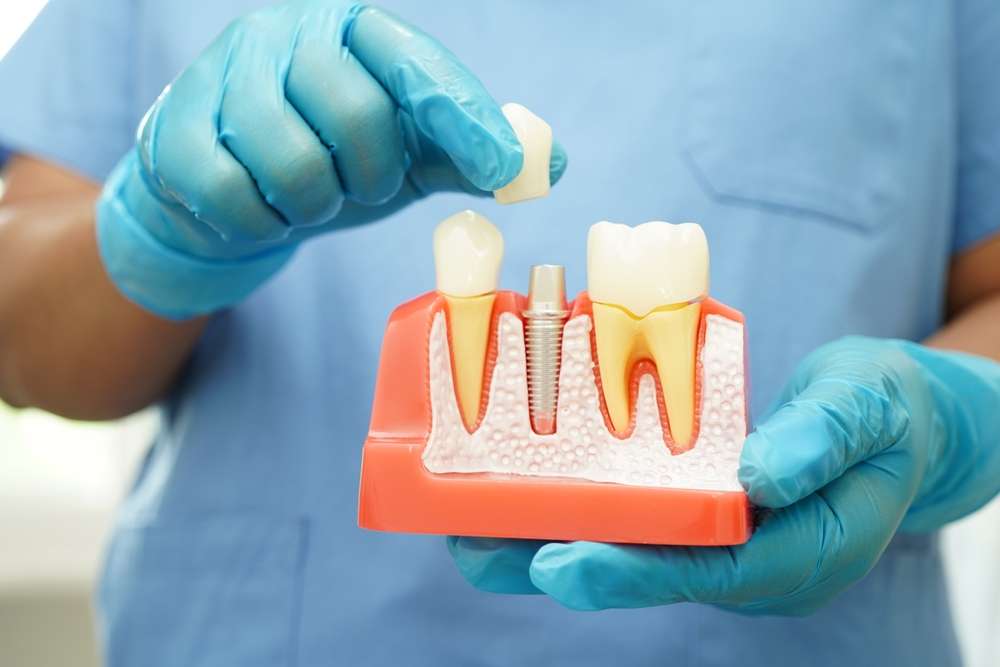Getting Dental Implants at a Dental School: What Patients Should Know
Many dental schools offer implant procedures performed by licensed professionals and supervised students at lower costs than private clinics. This guide explains how dental school programs work, what patients can expect during treatment, and the factors that influence price, safety, and long-term results.

Dental implants have revolutionized tooth replacement options, offering a permanent solution that looks, feels, and functions like natural teeth. However, the high cost of implant procedures at private practices can be prohibitive for many patients. Dental schools across the country provide an alternative pathway to receiving quality implant treatment at significantly reduced rates. These teaching institutions offer implant services performed by dental students under close faculty supervision, creating a win-win situation where students gain valuable experience while patients receive affordable care. Before pursuing this option, there are several important aspects patients should understand about the dental school implant experience.
How Dental Implant Programs Work at Dental Schools
Dental schools operate implant programs as part of their clinical education requirements. Advanced dental students, typically in their third or fourth year, perform procedures under the watchful eye of experienced faculty members who are specialists in implantology. The process typically begins with a comprehensive screening appointment to determine if you’re a suitable candidate. If accepted, your case may be assigned to a student doctor who will develop a detailed treatment plan that must be approved by faculty before any work begins. Each step of your procedure—from initial consultation through surgery and final restoration—serves as a learning opportunity and is thoroughly checked by licensed dentists. This teaching model means appointments are longer and treatment timelines are extended compared to private practice, as each phase requires faculty evaluation and approval.
Cost Comparison Between Dental Schools and Private Clinics
One of the primary advantages of choosing a dental school for implant treatment is the significant cost savings. Dental implant procedures at teaching institutions typically cost 30-50% less than at private practices. While a single implant might cost $3,000-$6,000 at a private practice (including the implant, abutment, and crown), the same procedure at a dental school might range from $1,500-$2,500. Multi-implant treatments and full-mouth reconstructions offer even greater savings. These reduced fees reflect the educational nature of the service and the extended treatment timeline, not the quality of materials used. Dental schools generally use the same high-quality implant systems and components as private practices.
| Treatment | Average Private Practice Cost | Average Dental School Cost | Potential Savings |
|---|---|---|---|
| Single Implant (Complete) | $3,000-$6,000 | $1,500-$2,500 | $1,500-$3,500 |
| Implant-Supported Denture | $15,000-$30,000 (per arch) | $7,000-$15,000 (per arch) | $8,000-$15,000 |
| Full Mouth Reconstruction | $25,000-$50,000+ | $12,000-$25,000 | $13,000-$25,000+ |
Prices, rates, or cost estimates mentioned in this article are based on the latest available information but may change over time. Independent research is advised before making financial decisions.
Who Qualifies for Dental School Implant Programs
Not every patient is an ideal candidate for dental school implant programs. Schools typically have specific selection criteria based on educational objectives and clinical complexity. Ideal candidates usually have good overall health, sufficient bone volume for implant placement, and cases that align with the school’s educational requirements. Many schools prioritize patients with relatively straightforward implant needs that match student learning objectives. Patients with complex medical histories, severe bone loss requiring extensive grafting, or complicated dental issues might be referred elsewhere. Additionally, dental schools often have long waiting lists, so patients must have flexibility in their treatment timeline. The screening process is thorough and may involve comprehensive examinations, radiographs, and evaluations by multiple faculty members to determine if your case is appropriate for student treatment.
Safety and Supervision in Dental Student Procedures
Despite being performed by students in training, dental implant procedures at teaching institutions maintain high safety standards. Every step is closely supervised by experienced faculty specialists who provide guidance and ensure quality control. In fact, the level of oversight can sometimes exceed what occurs in private practices. Before any procedure begins, treatment plans undergo rigorous review by multiple faculty members. During surgical phases, faculty members are always present, often providing hands-on assistance or taking over if complications arise. The teaching environment also means procedures follow the most current evidence-based protocols. Additionally, dental schools typically have stringent sterilization procedures and infection control standards that meet or exceed industry requirements. While the treatment process takes longer, this methodical approach with multiple checks and balances can result in highly controlled, carefully executed care.
Dental Implant Success Rates and Aftercare
Success rates for dental implants at teaching institutions are comparable to those in private practice, typically ranging from 95-98% for straightforward cases. This high success rate is attributed to careful case selection, thorough treatment planning, and close supervision. However, the long-term success of any implant depends significantly on proper aftercare and maintenance. Dental schools provide comprehensive post-operative instructions and schedule regular follow-up appointments to monitor healing and integration. They also emphasize the importance of meticulous home care and regular professional maintenance. Most schools offer continuing care programs where patients can return for routine check-ups and professional cleanings at reduced rates. These follow-up visits are crucial for monitoring implant health and addressing any concerns before they become serious problems. Many schools also conduct research on implant outcomes, allowing them to track long-term success rates and continuously improve their protocols.
Patient Experience and Treatment Timeline
The patient experience at a dental school differs significantly from private practice. Treatment timelines are extended—what might take months in private practice could take a year or longer at a dental school due to academic schedules, student availability, and the thorough review process at each step. Appointments are typically longer (often 2-3 hours) and more frequent. Patients must demonstrate exceptional patience and flexibility with scheduling. The clinical environment is more open, with multiple student-faculty interactions occurring simultaneously. While this educational setting lacks the amenities and privacy of private practices, many patients appreciate being part of the learning process and the thorough explanations provided at each step. Additionally, dental schools often offer comprehensive care, meaning patients can address multiple dental concerns beyond implants within the same institution, often at similarly reduced rates.
Dental school implant programs offer a valuable alternative for patients seeking quality implant treatment at reduced costs. While treatment takes longer and requires more patient flexibility, the careful supervision and thorough approach can result in excellent outcomes. For those with adequate time and without complex dental needs, these programs represent an opportunity to receive life-changing dental implant treatment that might otherwise be financially out of reach. Patients considering this option should research programs at nearby dental schools, understand the selection criteria, and prepare for a longer but potentially more educational treatment journey than they would experience in private practice.




